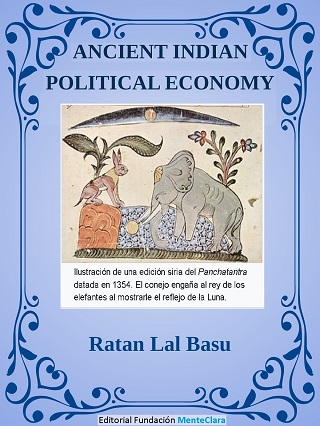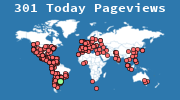ECONOMÍA POLÍTICA DE LA ANTIGUA INDIA
DOI:
https://doi.org/10.32351/rca.v8.326Palabras clave:
historia Antigua de la India, política, economíaResumen
Publicamos el siguiente documento del Dr. Ratan Basu como una joya digna de preservarse para tener una visión más clara de la historia de la India y cómo fueron desarrollándose las formas sociales, políticas y económicas. Basado en las tradiciones indias antiguas de las fuentes autóctonas de la historia que se encuentran dispersas en los Vedas, Puranas, las epopeyas -Rāmāyana y Mahābhārata-, textos budistas, jainistas y las excavaciones e inscripciones rupestres como fuentes de información, amplía el foco de su investigación ya que en lo que respecta a la historia cronológica -como generalmente entendemos por el término "historia"-, los textos indios antiguos apenas brindan una idea coherente. Es por eso que incluye en este documento autores extranjeros desde Escílax de Carianda pasando por autores griegos, chinos, cristianos hasta principios del siglo XX.
Es fundamental esta investigación sistemática y profunda, para comprender los orígenes y las fuentes del primer manuscrito hallado del Pancha Tantra datado en los albores del siglo XI que dan cuenta acabada de la sociedad, la economía y la política de la antigua India para que los eruditos en filosofía tántrica puedan establecer con mayor precisión y rigor científico la categoría “tantrismo” como fuente de los movimientos emancipadores que culminaron con la constitución del 1949 y el artículo 15 motorizados entre otros por B.R. Ambedkar.
Descargas
Referencias
Aiyangar, K.V. Rangaswami (1949): Indian Cameralism, a Survey of Some Aspects of Arthaśāstra, Madras, the Adyar Library, India.
Altekar, A. S. (1962): State and Government in Ancient India, Delhi, Motilal Banarasidass.
Aristotle: Politics, translated by Benjamin Jowett [http://ebooks.adelaide.edu.au/a/aristotle/a8po/]
Ballantyne, James R. (translator) (1885): Sankhya Aphorisms of Kapila, London, Trubner & Co., Ludgate Hill.
Basu, Ratan Lal (2005) "Why the Human Development Index Does not Measure up to Ancient Indian Standards" in The Culture Mandala (The Bulletin of the Center for East-West Cultural and Economic Studies, Bond University, Australia), Vol.6, No.2, January 2005. [http://www.international-relations.com].
Basu, Ratan Lal (2005): "Human Development Part 2: Ancient Kingship, Modern Politicians and the Problem of Corruption in India" in The Culture Maṇá¸ala, Vol.7, No.1, December 2005.
Blackstock, Paul W. (1964): The Strategy of Subversion, Manipulating the Policies of Other Nations, Chicago, Quadrangle Books.
Buch, M.A. (1979): Economic Life in Ancient India, Allahabad, R.S. Publishing House.
Chunder, Pratap Chandra (1995): Kauṭilya’s Arthaśāstra, Calcutta, The M. P. Birla Foundations.
Clark, Christopher (2007): Iron Kingdom: The Rise and Downfall of Prussia, 1600-1947, New York, Penguin.
Cosmas: Christian Topography [http://www.scribd.com/doc/131184581/Cambridge-Library-Collection-Hakluyt-First-Series-Cosmas-Indicopleustes-Edited-and-Translated-By-J-W-McCrindle-The-Christian-Topography-of-Cos]
Dallin, David J. (1955): Soviet Espionage, New Haven, Yale University Press.
Dasgupta, S. N. & Dey, S. K. (eds.) (1962): A History of Sanskrit Literature, Vol. I, University of Calcutta.
Devi Purana (Devi Bhagavatam) Sanskrit: 1. Shrimad devi Bhagavat MahaPuran, Sanskrit Text with Hindi Translation, 2016 Edition, Gorakhpur, Gita Press.
English: [http://upload.vedpuran.net/Uploads/68655SrimadDeviPurana.pdf]
Engels, Frederic (1884): The Origin of the Family, Private Property and the State, Moscow, Progress Publishers, Eighth Printing, 1972
Furago, Ladislas (1961): Burn after Reading: The Espionage History of World War II, New York, Walker.
Furago, Ladislas (1962): War and Wits, New York, Paperback Library.
Gadgil, D.R. (1973): Industrial Evolution in India in Recent Times, Delhi, Oxford University Press.
Ganguly, Kisari Mohan (1883-1896): The Mahābhārata of Krishna-Dwaipayana Vyasa (Eng. Tr.), Munshiram Manoharlal Publishers, 1991, ISBN: 9788121500944, 9788121500944 (Śanti Parva, Book-12, Chapter-59, ślokas-68-73) [http://www.Mahābhārataonline.com/translation/index.php]
Gramont, S. D. (1962): The Secret War, New York, Putnam.
Jayaswal, K. P. (1967): Hindu Polity, Bangalore City, Bangalore Printing and Publishing Co. Ltd.
Kangle R. P. (2000): Kauṭiliya Arthaśāstra (Eng. Translation), Part – II & III, Delhi, Motilal Banarasi Dass.
Kann, Robert A. (1974): A History of the Habsburg Empire: 1526-1918, California Press.
Kant, Immanuel (1795): "Perpetual Peace", in his Principles of Politics, (trans. W. Hastie), Edinburgh, Clark, 1891.
Kosambi, D. D. (1981): The Culture and Civilization of Ancient India, New Delhi, Vikas Publishing House.
Laertius, Diogenes (2001) (tr. R. D. Hicks): Lives of Eminent Philosophers, Vol. I, Harvard University Press.
Lazo, Waleuska (2019): The Gift of Bravery: The Story of Eli Cohen - Our Hero and Spy, Waleuska Lazo, ISBN-1732743142, 9781732743144
Machiavelli, Niccolo (2011), The Prince, (translated by W. K. Marriot), Oregon, Watchmaker Publishing [http://www.gutenberg.org/files/1232/1232-h/1232-h.htm]
Majumdar, R. C. (1960): Ancient India, Delhi, Motilal Banarasidass.
Marx & Engels (1848): Manifesto of the Communist Party, Moscow, Progress Publishers, 1975.
Max Müller, F. (ed.): Sacred Books of the East, Vol. XXV, Oxford Clarendon Press, 1886.
Max Müller, F. (ed.) (1888): Sacred Books of the East, Vol. XXV, Oxford Clarendon Press.
McCrindle, J. W. (1896): The Invasion of India by Alexander the Great as Described by O. Curtias, Diodorus, Plutarch and Justin, West Minster, Archibald Constable.
McCrindle, J. W. (1901): Ancient India as Described by classical Literature, West Minster, Archibald Constable.Megasthenes: Indika [http://www.sdstate.edu/projectsouthasia/upload/Megasthene-Indika.pdf].
Megasthenes: Indika (http://www.sdstate.edu/projectsouthasia/upload/Megasthene-Indika.pdf).
Mookerji, R.K. (1980): "Economic Conditions" in Majumdar, R.C. (ed.), The History and Culture of Indian People, Vol.-II, Bombay, Bharatiya Vidya Bhawan.
Mukherjee, Bharati (1976): Kauṭilya’s Concept of Diplomacy, Calcutta, Minerva Associates, Pvt., Ltd.
Panikkar, K.M. (1960): A Survey of Indian History, Bombay, Asia Publishing House.
Periplus: The Periplus of the Erythraean Sea [http://www.fordham.edu/halsall/ancient/periplus.asp.]
Plato: Laws (http://plurality-press.info/wp-content/uploads/2011/07/Laws-by-Plato.pdf)
Plato (1901): The Republic, edited and translated by Benjamin Jowett, New York, P. F. Collier & Son.
ÅšÄstri, K.A.Nilakanta (ed.) (1967): Age of the Nandas and Mauryas, Delhi, Motilal Banarasidass.
Sen, Satyendra Nath (1976): Manusmṛti, Chapter-VII (English translation), Vidyodaya series No.16, Calcutta, Chattopadhyaya Brothers, Introduction P. xii-xiii.
Shamaśāstry, R. (ed.) (1967): Kauṭilya’s Arthaśāstra, Mysore, Mysore Printing and Publishing House.
Strabo: Geography [http://penelope.uchicago.edu/Thayer/E/Roman/Texts/Strabo/home.html].
Thapar, Romila (1990): A History of India, Volume 1, New Delhi & London, Penguin Books.
Tripathi, R. (1981): History of Ancient India, Delhi, Motilal Banarasi Dass, Delhi.
Estadísticas de lectura: 1801
Descargas: PDF (INGLÉS) 653 - HTML (INGLÉS) 1097 - EPUB (INGLÉS) 277
Descargas
Publicado
Número
Sección
Licencia
Los autores que publican en esta revista están de acuerdo con los siguientes términos:
- Los autores publican bajo una licencia de Creative Commons Reconocimiento 4.0 Internacional que permite a otros compartir el trabajo con un reconocimiento de la autoría del trabajo y la publicación inicial en esta revista.
- Se permite y se anima a los autores, quienes conservan sus derechos luego de la publicación, a difundir sus trabajos electrónicamente (por ejemplo, en repositorios institucionales o en su propio sitio web) antes y durante el proceso de envío, ya que puede dar lugar a intercambios productivos, así como a una citación más temprana y mayor de los trabajos publicados (Véase The Effect of Open Access).

Desde el 1º de noviembre de 2018 todos los artículos de esta revista están disponibles bajo una licencia de Creative Commons Reconocimiento 4.0 Internacional.








 Consultar
Consultar 